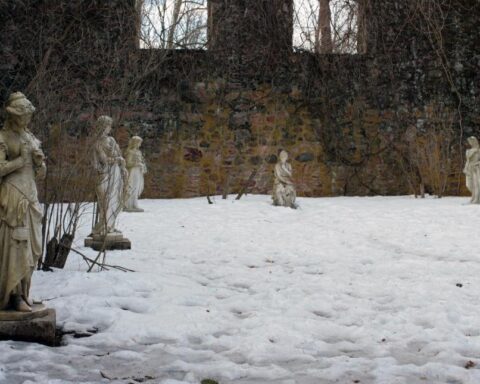Guy from Halfway Cove
drags something especially heavy or attractive
along a certain stretch of bottom for months until
he finally finds the end of the Trans-Atlantic Cable.
Alone on the ocean
with every electrolyte lifting
everything to another
dimension: as if your lucky hands could grab
numb thunder, barely holding on to an endless eel,
a gunky sculpin, or what’s left of a frozen sentence.
All those lost words left over from promises, stances
& plans – how we were now.
He marks the thing with four weir buoys
ten feet below the surface at low tide,
rigs a surplus spool to his winch & covers it all
with a blue plastic tarp, promising himself he’ll never go
near there when anyone else might guess
For starters, that copper wire can pay off
his boat & house. Then the down payment on
a secondhand transport truck, good for everything
from in-law phone poles to outlaw blueberry flats.
If you don’t get greedy, you’ll never get top-heavy.
Best price, by spool or by ton, has to include
the cost of everybody’s silence. Plus, of course,
him showing up on demand. Gotten,
begotten, forgotten, done.
But the larger artifice feels creepy
when you don’t know what to think.
Nature knows where we live.
Water & weather have minds of their own.
Who can do much of anything when
they get together to storm?
Consequences sneak in like heat-seeking spiders
& it’s a washout.
Inside a month, those markers get blown anywhere
from Signal Hill to Cape Hatteras.
Gone for good.
So there’s no end to anything.
But now, at least, he can laugh aloud at himself.
And start to come & go & know
where people go again.




